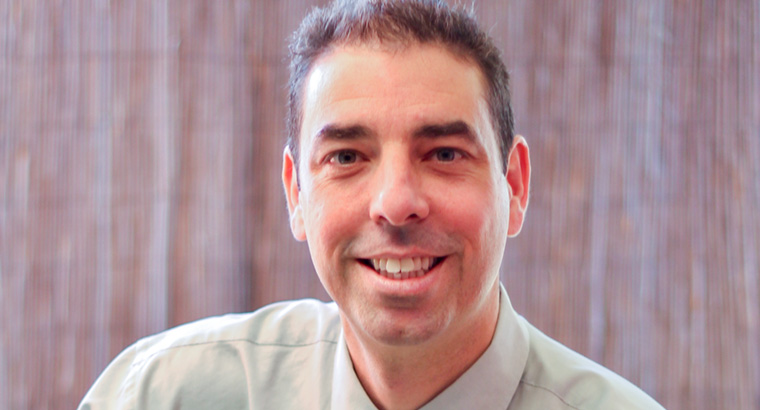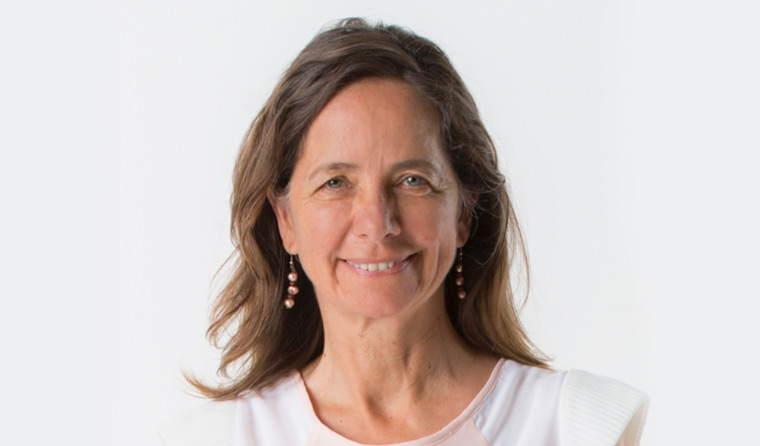News
Pulse check: How GPs feel about MBS reform
While there is universal agreement that Medicare needs to change, many remain wary about what this will look like in practice.
 Most GPs agree there is a need for change, in particular to address the complicated Medicare system.
Most GPs agree there is a need for change, in particular to address the complicated Medicare system.
It can be hard to keep track of the slew of developments affecting general practice at the moment.
With the Albanese Government approaching a year in office, a crucial Budget is looming in May and speculation on its contents is growing.
The Government’s Strengthening Medicare Taskforce – a pre-election commitment – has also now gathered and reported, and tangible measures emerging from that high-level document will be part of the Budget.
Meanwhile, the pharmacy prescribing debate has intensified and spread to multiple states.
This week, a report on Medicare compliance and integrity by the health economist Dr Pradeep Philip was released, a document that could have profound implications for the universal health insurance used by patients to support their visits to GPs.
After this latest in a series of consequential developments, newsGP approached a range of GPs from across the country for a sense of the current mood, with questions focused on how they viewed the recommendations put forward by Dr Philip.
Perhaps the overriding theme from those who commented is agreement on the need for change, in particular to address a Medicare system the RACGP President has described as ‘fiendishly complex’.
Many also remarked on the fact that the systemic issues highlighted by the Philip report have long been flagged by GPs.
Dr Michael Tam, a NSW GP and member of the RACGP Expert Committee – Quality Care (REC–QC), is one.
‘The structural problems with Medicare are well known and acknowledged by the medical profession,’ he told newsGP.
‘In large part, this review simply tells us what we already know. The numerical estimates of non-compliance and fraud are consistent with previous estimates.’
Gold Coast GP Dr Liesel Whyte also points out that Medicare’s flaws are ‘something GPs flagged years ago’.
Chance for change
Notwithstanding the many times GPs and health organisations – including the RACGP – have previously highlighted the need for change, almost everyone welcomed the heightened possibility of tangible reform signalled by the report.
Typifying this attitude is Adelaide GP Dr Danny Byrne.
‘I fear the review will not solve all our problems but it is a golden opportunity to make some common sense reforms,’ he told newsGP.
Dr Nick Tellis, also based in Adelaide, described it in similar terms, saying reform could help the Government get better value for money, reduce complexity and improve health equity all in one.
Dr Rebecca McGowan, a GP for more than 30 years who works in rural Victoria, calls the review ‘well overdue and clearly needed’.
‘We need to accept, without each branch of the profession defending their turf, that there are clear and many cases where Medicare is not being utilised appropriately,’ she said.
 Adelaide GP Dr Danny Byrne.
Adelaide GP Dr Danny Byrne.
Simplification
Again, another near universal theme from the responses, is relief at the onus on simplifying the system.
A few brought up examples of current MBS approaches that can complicate clinical care.
‘The extraordinarily complex item descriptors for assessing eligibility for COVID-19 vaccines are a perfect example of making a simple task complex,’ Dr Donald Rose told newsGP.
The Tasmanian GP says that in his role as a medical educator, students under his watch often relay their confusion at attempting to grapple with the MBS.
‘Many descriptors in the MBS will say “you cannot bill this with 1123, 4456,2287, 5579, 4444”,’ he said.
‘The only way they can understand what that actually means is to then look up each of those item descriptors individually, which is neither practical nor good use of valuable time.
‘They instead ask their reception staff who are equally confused. The only solution to this is simplification.’
While Dr Rose believes that the system should be simple enough to understand without more education, Queensland GP Dr Tammra Warby told newsGP any reform should include improved guidance for Medicare providers.
‘Even support mechanisms such as “Ask MBS” also give a disclaimer saying “you can’t rely on our advice legally”, so whose advice can a doctor rely on to get it right?’ she said.
‘We all agree the system needs updating, transparency and integrity and education is vital. We have been saying for years education in the Medicare system is lacking.’

Queensland GP Dr Tammra Warby.
Perth GP and practice owner Dr Sean Stevens says most GPs would agree with Dr Philip’s findings.
‘Medicare is too complex, there are too many changes and the enforcement is overly punitive,’ he told newsGP.
‘Simplifying Medicare and structural change is what Dr Philip is recommending and I think most GPs would welcome that.’
Dr Byrne is certainly among them.
‘Surely the Government will have to take action now after years of ignoring our ideas for a modern, simpler, rational approach to Medicare item numbers?’ he said.
Health equity
Another theme raised by more than one GP is the need for reform to address healthcare inequities.
‘Medicare systemically undervalues GP care, and the compliance approach appears to punish those who practise differently than their colleagues,’ Melbourne GP Dr Mariam Tokhi told newsGP.
‘The recent audit and punishment of Dr John Scopel for utilising case conference item numbers for multidisciplinary complex care has real world implications for those who try to care for the most vulnerable.’
She believes the current set-up means GPs are disincentivised to work with medically and socially vulnerable patients.
‘Australian GPs need a system that empowers them to provide high quality care for all patients, not just the wealthy,’ Dr Tokhi said. ‘This must be the focus of ongoing Medicare reform.’
The issue also weighs heavily with Dr Tim Senior, who recently helped to found RACGP Specific Interests Deprivation and Poverty.
‘If there is no health equity lens applied to this, if there is no assessment of how compliance measures affect the quality of care or the experiences of patients receiving medical care, then it is likely that underserved communities, including Aboriginal and Torres Strait Islander communities, including rural and remote communities, including anyone with complex health problems, will be the people who lose access to care,’ he told newsGP.
Dr Senior also referenced Dr Scopel’s audit case and believes that without a change in emphasis, GPs serving marginalised groups will likely be the predominant target of compliance measures. He notes that will be the case ‘especially if statistical outlier rules are not changed’.
Dr Byrne highlights the push in Dr Philip’s report to keep patient care as the central tenet of Medicare.
‘As with all parts of the healthcare system, Medicare payments should be designed in a way that works backwards from patient outcomes to support the accessibility and quality and safety of health services to those that need it, especially those underserved or vulnerable populations,’ the report states.
‘I fully agree,’ Dr Byrne said.
‘It is mind numbing to waste so much time on pedantic paperwork to satisfy some bureaucratic nonsense when we would much prefer to spend time on genuine patient care.’

Perth GP and practice owner Dr Sean Stevens.
On a similar note, Dr McGowan urges those tasked with reforming Medicare to consider the GP’s patient cohort before sending a cease-and-desist letter.
She does, however, believe a firmer crackdown on genuine non-compliance could benefit patient care, giving the example of clinics that see a patient as a one-off and then claim a mental health plan or care plan without the patient knowing that it has been performed.
This can have an impact on a patient’s regular GP when they appropriately look to bill for that item later, Dr McGowan says.
‘There is a paper trail for this and it is easily identifiable, yet still it continues to occur seemingly without consequence,’ she said.
Lingering anger
While GPs broadly welcomed the direction and conclusions of the Dr Philip review, a deeply held antipathy remains for the reporting that triggered its commissioning.
This was prompted in November following ABC 7.30 and Nine Newspaper reports that focused on rorting and non-compliance in general practice, which were headlined by a fiercely contested $8 billion figure.
The tone of Dr Philip’s report was strikingly diplomatic, urging for constructive discussions focused on the structural recommendations, rather than on the numeric value of non-compliance.
Dr Senior recognises the realpolitik at play in the wording.
‘[Dr Philip] has tried to dampen down the controversy generated in the inaccurate news articles late last year, and that is probably necessary if there is going to be any policy change,’ he said.
However, more than half of the GPs who commented mentioned ongoing anger at the coverage.
 Melbourne GP Associate Professor Vicki Kotsirilos.
Melbourne GP Associate Professor Vicki Kotsirilos.
South Australian GP Dr Alvin Chua is among those who remain deeply critical both of the journalism that led to the review, and of the existing compliance apparatus.
‘Perhaps all doctors who received nudge letters could now send a Robodebt style letter of demand to Medicare?’ he told newsGP.
‘After all what’s good for the goose should be good for the gander.’
Obstacles to reform
While the prevailing sentiment could be described as cautious optimism, several cynical notes were sounded about the potential impact of Government-led reforms.
‘I am bullish on GPs and general practice, far less so on government,’ Dr Tellis said.
Melbourne GP Associate Professor Vicki Kotsirilos also did not hide her concerns.
‘These reports always frighten me,’ she told newsGP. ‘I do not trust any reforms proposed as it is always about cost-cutting and not of benefit for GPs.
‘I have only one message for GPs: stop bulk billing and let patients negotiate for rebates with Government.’
While more upbeat about the prospect of reform, Dr Stevens is not without apprehension.
‘My only concern is that the Government may use it as a way to effectively reduce Medicare rebates and that the implementation will be another major change that GPs will have to digest,’ he said.
Dr Whyte in the meantime notes the ‘nuts and bolts’ of any overhaul are not yet clear and says ‘the devil will be in the detail’.
‘My hope is that the process will include feedback from frontline clinicians who deal with Medicare complexity on a daily basis,’ she said.
Log in below to join the conversation.
Dr Pradeep Philip MBS Medicare Integrity Medicare reform
newsGP weekly poll
Health practitioners found guilty of sexual misconduct will soon have the finding permanently recorded on their public register record. Do you support this change?